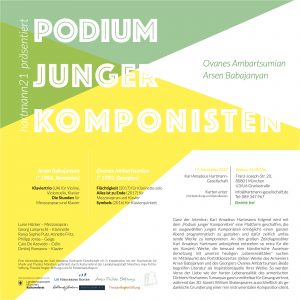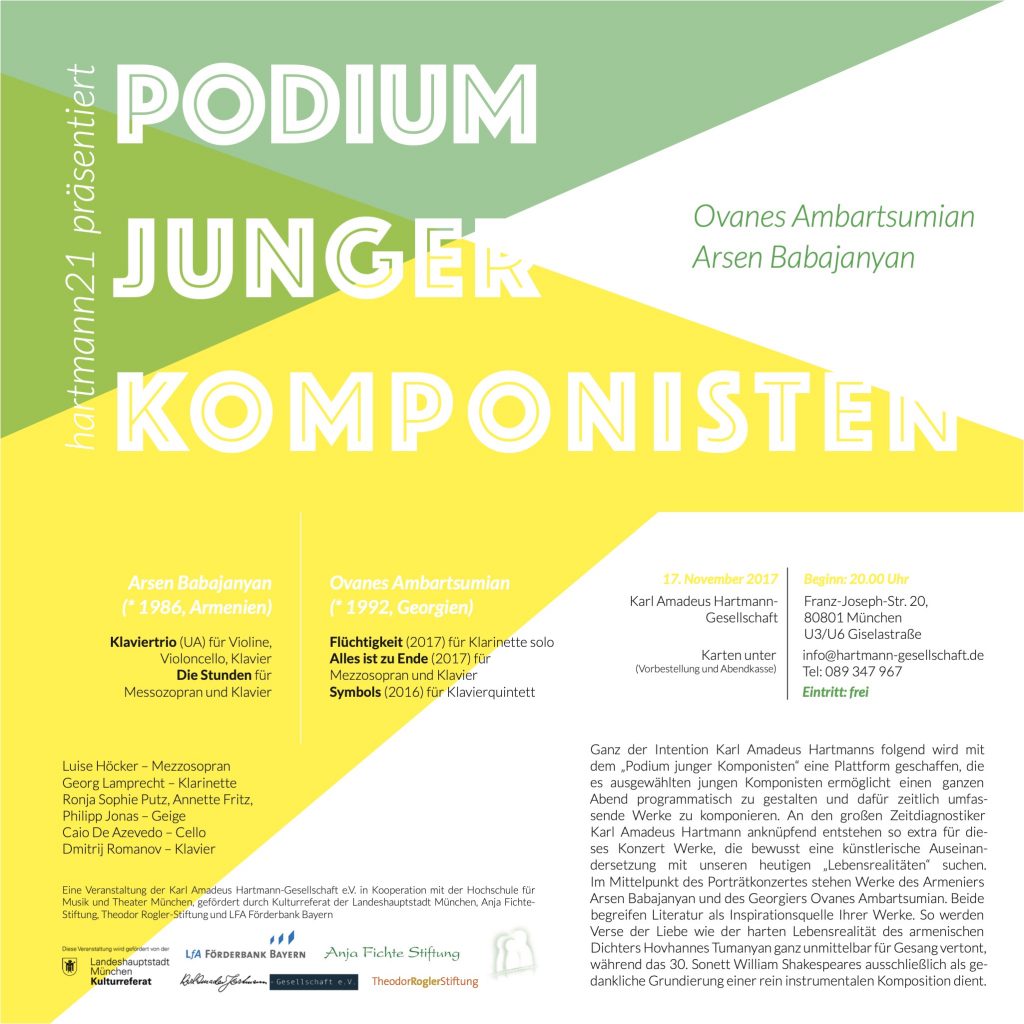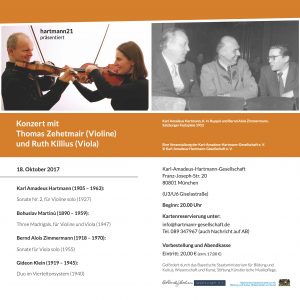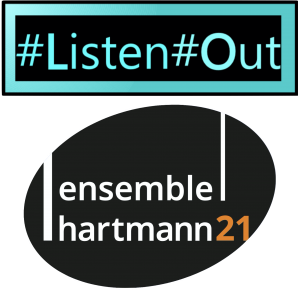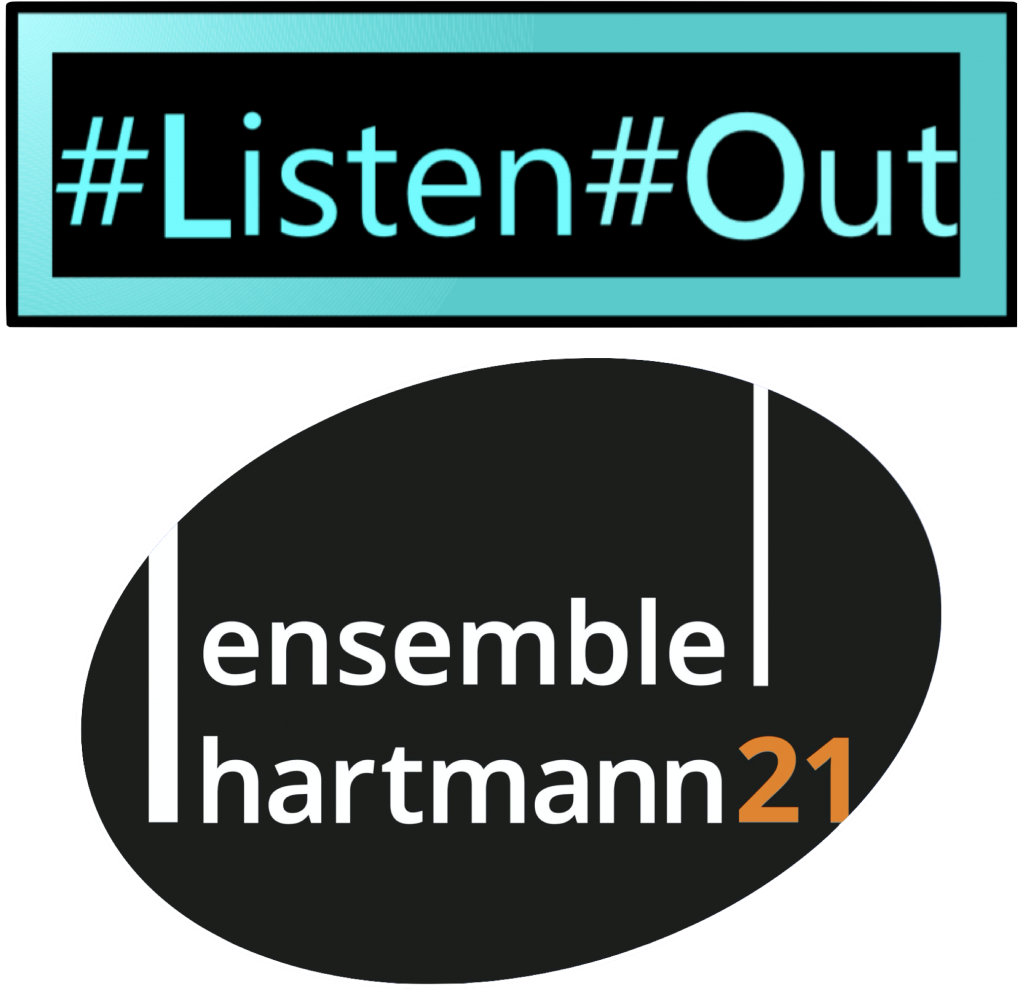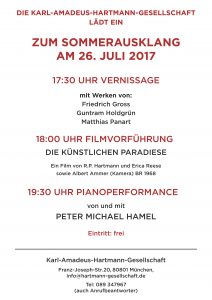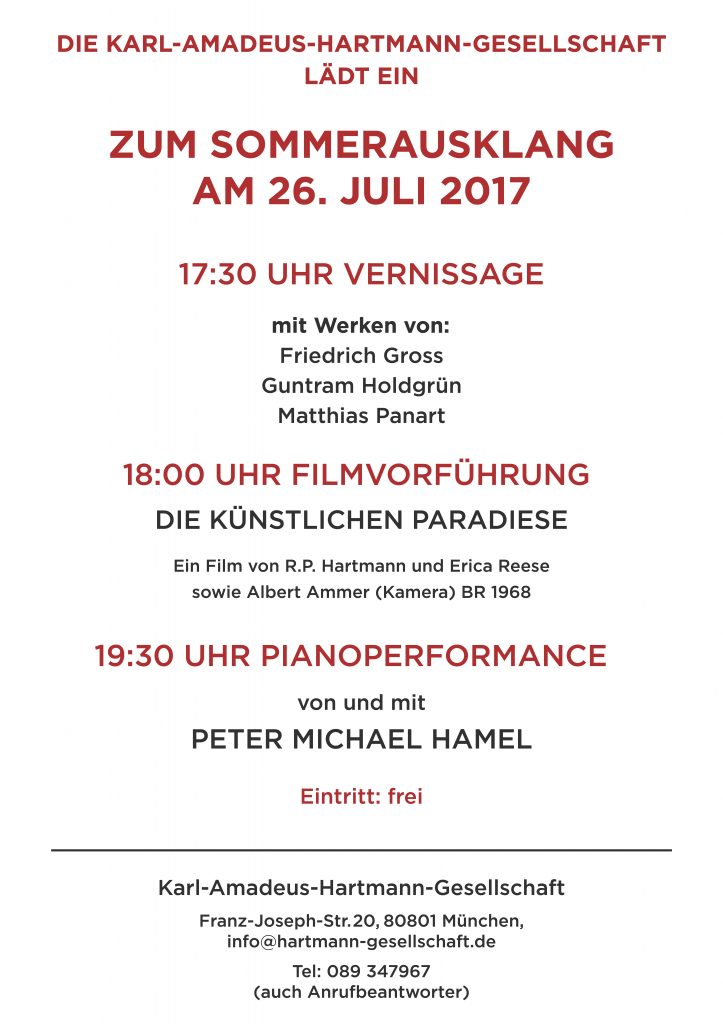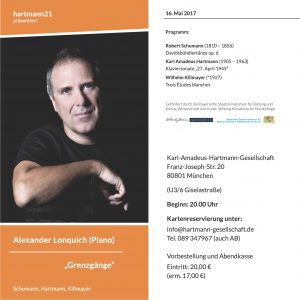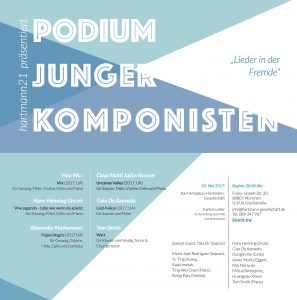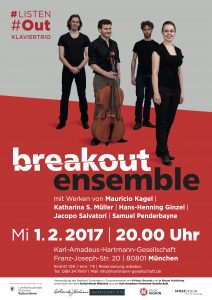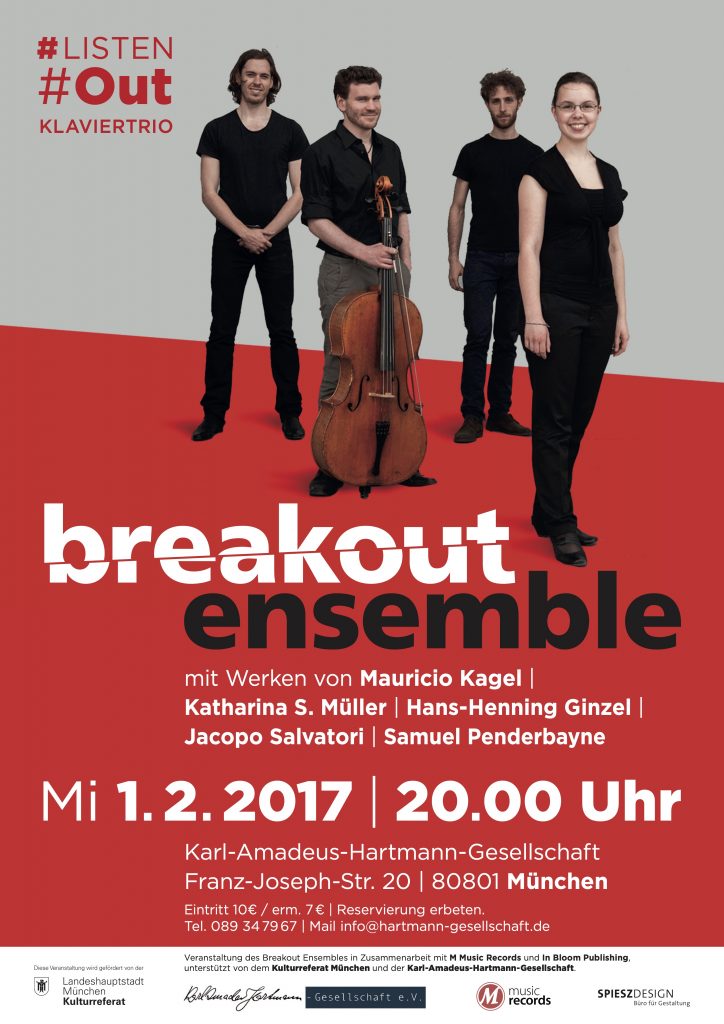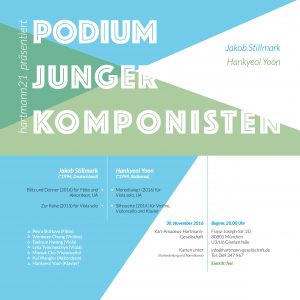Karl Amadeus Hartmann’s message of humanism:
Simplicius Simplicissimus in its UK premiere at London’s Independent Opera at Sadler’s Wells
On November 11, 2016 Karl Amadeus Hartmann’s opera “Simplicius Simplicissimus” will celebrate its British premiere at the Independent Opera at Sadler’s Wells. The sublime Britten Sinfonia – conducted by Timothy Redmond – will be playing. For the first time, the Grimmelshausen opera will be sung in an English language version created by the internationally renowned director David Pountney.
It is directed by the young British director Polly Graham, who visited Munich with her set designer Nate Gibson as a guest of the Karl Amadeus Hartmann-Gesellschaft in preparation for this production. In detailed discussions with the artistic director and managing director Andreas Hérm Baumgartner as well as Richard Hartmann, she informed herself about the genesis of the work and, among other things, about the deliberate use of Jewish themes, quotations of ostracized and forbidden artists as a warning message in the sense of a comprehensive humanism. Hartmann began composing the opera in 1934 and in it he offensively proclaimed a political and social upheaval. Due to the beginning of the German Wehrmacht’s campaign in France, the world premiere and radio broadcast by Belgian Radio in Brussels unfortunately was cancelled in 1940. Up to this point, Hartmann had continued to believe in an “awakening” of the German population in National Socialist Germany and the associated overthrow of the terror regime. He also lets his play end on the plot level with a victorious revolution of the enslaved peasants over their oppressors and the ruling class, but musically and dramaturgically he counteracts this with the quiet and slowly spoken words of the speaker: „Zeit des Entsetzens, Jahrzehnte des Grauens“ [“Time of horror, decades of horror”]. A silently fading last sound of the deep gong follows.
There is no question that Karl Amadeus Hartmann wanted the social revolution in the play (Thirty Years’ War) as well as in his contemporary parallel reality of the Third Reich and promoted it in various ways. Through the interpretation on the text and music level, which counteracts the apparent victory, he simultaneously addresses the question of the means by which this should be done. The main figure Simplicius Simplicissimus, who by apparent naivety was able to preserve the “Seelenschatz” [“Treasure of soul”] and thus became the topos of humanism par excellence, is spared by the victorious peasants only because he is considered too low: „Du Wurm bist nicht wert, dass man den Arm gegen dich aufhebt“ [“You worm are not worthy to have your arm raised against you”]. If a new era is justified by the disregard for human dignity and respect for others is trampled underfoot, if renewed violence is the new currency, then this novelty must be radically rejected or at least met with enormous mistrust.
Andreas Hérm Baumgartner
Further performances will take place on November 15, 17 and 19, 2016.
Information page of the Independent Opera at Sadler’s Wells:
https://www.independentopera.com/productions/simplicius-simplicissimus
The director also reports about her visit to the Hartmann Society in her blog:
https://www.independentopera.com/blog/entry/2016-director-fellow-polly-graham-visits-munich-ahead-of-simplicius-rehears
